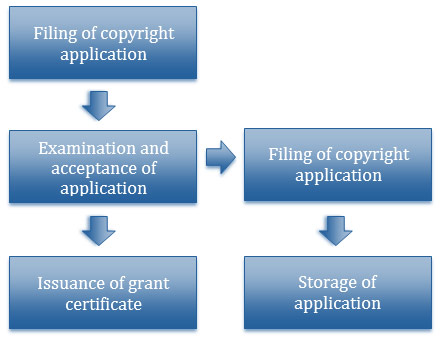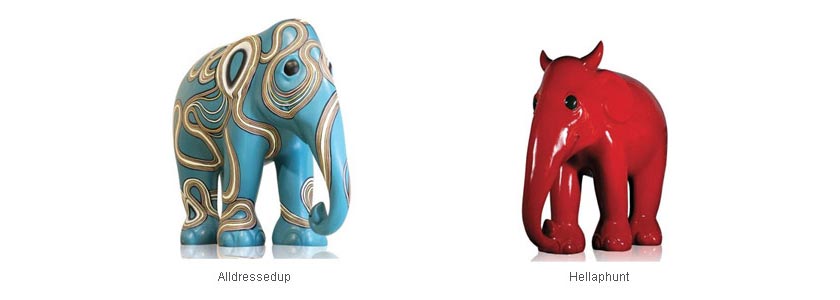Below are answers to frequently asked questions relating to copyright protection in Thailand. An English translation of the Thai Copyright Act is also available here.
| QUICK TIPS | |
| BENEFITS OF A RECORDED COPYRIGHT | TIPS FOR COPYRIGHT OWNERS |
|
|
It is notable that Thailand is a party to the Berne Convention for the protection of literary and artistic works. Therefore, Thailand affords protection to foreign works and these foreign works automatically enjoy copyright protection similar to that of domestic works.
Under Thai law, copyright protects the tangible expressions of authorship, with many possible forms for such expressions. Importantly, is the expression of the idea and not the idea itself that is protected. In other words, a copyright protects the form of expression rather than the subject matter of the work. Some tangible form of the work is required for a work to receive copyright protection.
Copyright does not protect ideas, procedures, processes, systems, methods of use or operation, concepts, principles, discoveries, or scientific or mathematical theories.
Apart from the restriction stated above, copyright protection extends to a wide range of physical expressions of ideas including the following:
Copyright to a work exists upon its creation, for a fixed term, depending on the type of work. It is important to note that, while copyright is the only IP right enforceable without formal registration or recordation, efforts to commercialize or defend against infringement are made extremely arduous when there is no prior recordation of copyright ownership. It should also be noted that, for certain types of work, the clock for the copyright protection period begins after the publication of the work, and not at its creation.
Copyright bestows rights on the creator of a work. Therefore. an application of copyright recordation includes considerations regarding the applicant’s ownership of the material to be copyrighted and whether or not the material was previously published.
Only copyright owners may apply for copyright recordation. Although most copyright owners are the creators of the work, in other cases persons other than the creator may be the rightful copyright owner(s). Employers, for instance, are often the copyright owner of works created by employees at the employer’s direction, unless an agreement between the employer and employee provides otherwise. Other cases in which copyright owners are not the creators of the work include assigned copyrights and inherited copyrights. As an example, copyright applications for software are usually filed by companies rather than individual creators/authors (which are usually employees of such companies).
Recordation of copyright serves to establish a legally recognized basis of ownership to a created work. Recorded copyrights provide protection against competing claims to a work’s ownership and use.
The copyright recordation process in Thailand involves filing the application, examination, acceptance of the application, electronic storage of the application, and the issuance of a certificate of recordation. The process typically takes two to four months to complete.

Recordation procedure for copyright in Thailand (simplified)
The following are required for copyright recordation:
In case of copyright application for software, first ten pages and last ten pages of program/source code can be submitted (or the entire programme as wished).
Copyright gives its creator various exclusive rights to control the economic use of his or her work.
Among these rights we can distinguish the exclusive rights to:
It is interesting to note that fair use is widely interpreted in Thailand. Reproductions/copies of copyrighted work as long as they are not for profit do not usually constitute infringement in Thailand.
Copyright also provides moral rights, which protect the author’s integrity and reputation.
Rights conferred to copyright owners are identical whether or not the copyright has been recorded. However recordation offers a strategic advantage and is strongly advised to establish proof of ownership or even date of creation or publication (information that is useful in cases of claims of concurrent independent creation). Recordation of a copyright also makes it easier to enforce rights by way of pursuing financial and criminal penalties against an infringer. The owner of a recorded copyright does not have to evidence against its right. The infringer must prove that it has a better right or that the copyright owner is not the lawful owner of such copyright. In other words, the burden of proof lies on the infringer and there is a presumption that the owner of a recorded copyright is indeed the owner of such right.
The rights and protections granted in copyright depends on whether the copyright owner is an individual or a juristic entity and whether the work was previously published.
Unpublished works belonging to individuals are provided copyright protection for the duration of the owner’s life and 50 years after the owner’s death. If the work is jointly owned by several authors, copyright protection is granted for the lifetime and subsequent 50 year after the death of the last surviving joint author.
Published works belonging to individuals are granted copyright protection for 50 years from the work’s first publication date.
Unpublished works belonging to juristic entities are granted copyright protection for 50 years from the date of the work’s creation.
Published works belonging to juristic entities are granted copyright protection for 50 years from the work’s first publication date.
An exception to the overall 50 year protection rule is copyright protection of applied arts. Applied arts are protected for a period of 25 years from the date of creation or publication, whichever is later.
In addition to direct commercial use of copyrighted works, owners of copyrights may also assign or license their work.
Assignments are permanent transfers of ownership and should not be confused with copyright licensing. It is in the interest of all parties to treat a copyright assignment transaction as a sale and purchase agreement. The parties should pay careful attention to the negotiations and drafting of the assignment agreement. For assignments to be recognised in Thailand, the assignment must be registered with the DIP.
Copyright licensing allows the licensor (the copyright owner) to give permission to a licensee (the receiver of the rights) to temporarily use, reproduce, or otherwise commercialise the copyrighted material.
One example of international successful copyright licensing originating from Thailand is our client Elephant Parade ®.

Elephant Parade concept is a unique combination of art, business and charity. Elephant replicas are painted by local and renowned international artists, exhibited in well-known cities and auctioned for charity. In this example, both the shape and decoration of each elephant sculpture is protected and Elephant Parade Company has successfully licensed the sale of hundreds of replicas as well as various merchandising items reproducing the famous elephants.
In some ways, the licensing of copyrights can be more complicated than mere assignment, or transfer, of a copyright. For many, it is helpful to approach copyright licensing agreements as lease agreements — the property being leased is the intellectual property of the created work, the rights to use the property are akin to usage of other leased properties. It is crucial that a copyright licensing agreement, and licensing agreements in general, include information about the exclusivity of the license, the duration of the license, and uses of the intellectual property being licensed.
Licensing agreements can be exclusive or non-exclusive. Exclusive license agreements give exclusive rights to the licensee – whether for scope, context, territory, market, or time – and prevent the licensor from licensing the same rights to other parties for the duration of the agreement. This concept can be seen in marketplace advertisements of “sole distributor” or “exclusive distributor” of several luxury goods in Thailand. Non-exclusive licenses are the opposite of exclusive licenses – the licensor may grant rights to several licensees, some of which may overlap, simultaneously in the same territory or at the same time. Although Thailand does not require that copyright licenses be recorded at the DIP, such recordation is generally considered sound business practice and is recommended in particular when a local licensee is authorised by a licensor to pursue infringers.